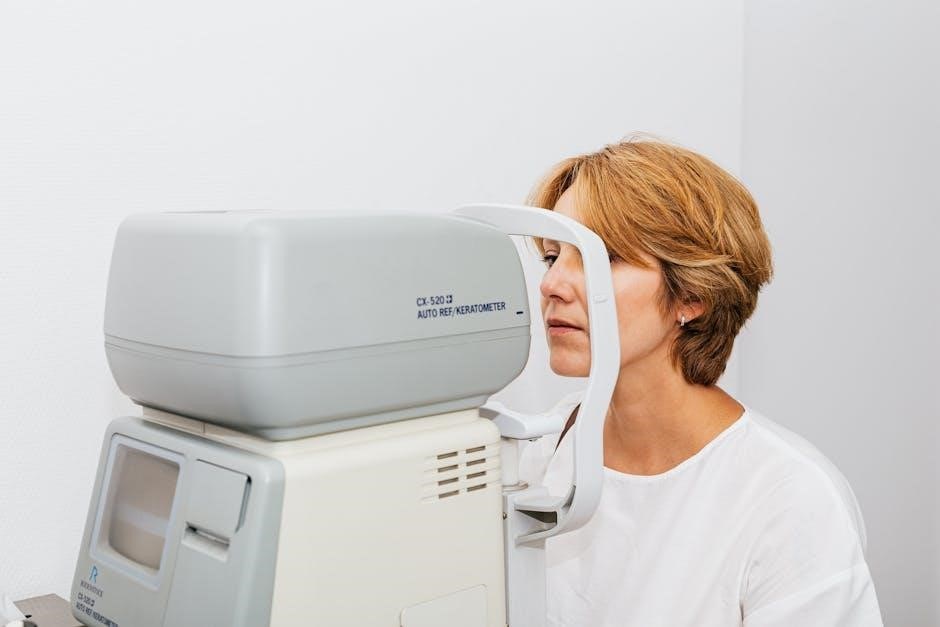Frank Turek’s work challenges political correctness, emphasizing truth over sensitivity. The book explores controversial topics like same-sex marriage and transgenderism, advocating for reasoned discourse over societal norms.
Understanding the Concept of Political Correctness
Political correctness refers to the practice of avoiding language or actions that may offend or marginalize certain groups. It often involves self-censorship to align with societal norms deemed inclusive. Originating from efforts to address historical injustices, PC has evolved into a complex framework influencing speech, media, and policy. Critics argue it can stifle free expression, while supporters see it as essential for promoting equality. The concept is deeply tied to discourse, power, and ideology, sparking debates over its role in fostering sensitivity versus censorship. Its application ranges from gender-neutral language to cultural inclusivity, reflecting broader societal shifts in communication and values.
Overview of the PDF Document
The PDF, titled Correct, Not Politically Correct, by Frank Turek, examines contentious issues like same-sex marriage and transgenderism. It challenges political correctness by advocating for truth-based discourse. Turek uses evidence and reasoning to argue that societal shifts in these areas harm individuals and society. The document critiques modern PC culture, emphasizing the importance of free expression over sensitivity. It also explores legal implications, such as hate speech definitions, and societal impacts, balancing benefits and drawbacks. Turek’s perspective offers a critical analysis of political correctness, urging a return to objective truth in public discourse and policy-making.

Historical Evolution of Political Correctness
Political correctness originated in Marxist thought, evolving to influence language and societal norms, serving as a tool for social change and reflecting cultural shifts over time.
Origins and Development of PC
Political correctness (PC) traces its roots to Marxist ideology, emphasizing equality and challenging oppressive structures. It evolved through 20th-century social movements, including civil rights and feminism, aiming to address systemic biases. By the late 20th century, PC became prominent in academia and media, promoting inclusive language and practices. Critics argue it often stifles free speech, while supporters see it as a tool for social justice. The concept has grown controversial, reflecting broader cultural shifts and debates over identity, power, and expression.
Modern Interpretations and Debates
Modern interpretations of political correctness often focus on its role in shaping cultural norms and public discourse. While some view PC as essential for promoting inclusivity and combating discrimination, others argue it stifles free expression and enforces conformity. The rise of social media has amplified these debates, with platforms becoming battlegrounds for PC-related discussions. Critics like Frank Turek, in his book Correct, Not Politically Correct, challenge PC’s influence on issues like same-sex marriage and gender identity, advocating for a return to truth-based dialogue. This tension reflects broader societal divisions over identity, rights, and the limits of tolerance in a diverse world.

The Role of Language in Political Correctness
Language shapes societal norms, with politically correct terms promoting inclusivity and avoiding offense. It reflects evolving values, balancing respect for diversity with freedom of expression.
The Power of Discourse and Ideology
Discourse and ideology significantly influence political correctness, shaping how language reflects societal power structures; Political correctness often aligns with dominant ideologies, creating norms that either include or exclude certain groups. Language becomes a tool to enforce these norms, sometimes stifling dissent or alternative viewpoints. Frank Turek argues that such linguistic frameworks can limit open dialogue, prioritizing sensitivity over objective truth. This dynamic highlights the tension between promoting inclusivity and preserving freedom of expression, emphasizing the need for balanced communication that respects diversity without suppressing critical discourse.

Gender-Neutral Language and Inclusive Practices
Gender-neutral language and inclusive practices aim to eliminate bias and promote equality by addressing all individuals without gender-specific terms. This approach reflects evolving societal norms and the recognition of diverse gender identities. However, debates arise over whether such practices suppress individuality or impose ideological conformity. Frank Turek argues that while inclusivity is important, it should not compromise truth or freedom of expression. The discussion highlights the balance between respecting gender diversity and maintaining linguistic freedom, emphasizing the need for thoughtful communication that honors both inclusivity and authenticity.

Challenges to Political Correctness
Political correctness faces opposition for allegedly stifling free speech and imposing ideological conformity. Critics argue it often prioritizes sensitivity over truth, fostering division rather than unity.
Arguments Against PC: Censorship vs. Sensitivity
Opponents of political correctness argue it often crosses into censorship, stifling open dialogue. Critics, like Frank Turek, contend that PC prioritizes avoiding offense over fostering honest discourse, potentially hindering progress by silencing dissenting voices. While the intent may be to protect marginalized groups, the outcome can sometimes be a restriction on free expression, creating a culture where certain viewpoints are deemed unacceptable. This tension between sensitivity and censorship remains a central debate in discussions about political correctness and its implications for society.
Case Studies: Same-Sex Marriage and Transgenderism
Frank Turek examines same-sex marriage and transgenderism as key battlegrounds in the political correctness debate. He argues that legalizing same-sex marriage and promoting transgender rights, while intended to foster equality, may inadvertently harm individuals and society. Turek uses evidence and reasoning to suggest that these policies can negatively impact children, familial structures, and societal stability. His approach sparks controversy but aims to encourage a balanced discussion, highlighting the importance of evaluating the broader consequences of such progressive changes. These case studies exemplify the clash between individual rights and societal norms.

Legal and Social Implications
Political correctness impacts hate speech laws and free expression. In Poland, hate speech lacks legal definition, reflecting broader debates on balancing inclusivity with freedom of speech.
Hate Speech and Freedom of Expression
Frank Turek’s work highlights tensions between hate speech laws and free expression. In Poland, hate speech lacks a legal definition, reflecting broader debates on balancing inclusivity with speech rights. Turek argues that restrictive speech codes, often tied to political correctness, can stifle open discourse. He emphasizes the importance of distinguishing between offensive speech and unlawful speech. This debate underscores the challenge of protecting freedom of expression while addressing harmful rhetoric. Turek’s perspective aligns with critics who fear that overly broad hate speech laws may infringe on democratic values and intellectual freedom.
Impact on Society: Benefits and Drawbacks
Political correctness has reshaped societal norms, promoting inclusivity and reducing offensive language. However, critics argue it may suppress open dialogue and limit freedom of expression. Frank Turek discusses how these changes impact various groups, including children and LGBTQ communities. While PC fosters respect, it can also create divisions by imposing strict speech codes. Turek suggests that truth and empathy should guide discussions, rather than fear of offense. This balance is crucial for a harmonious society, where both inclusivity and intellectual freedom coexist, ensuring that progress does not come at the cost of stifled discourse and cultural unity. Benefits and drawbacks must be weighed carefully.
Frank Turek’s work calls for balance between truth and sensitivity, urging society to engage in open, informed discussions. The book challenges political correctness norms, advocating for clarity and integrity in addressing controversial issues. By exploring the complexities of same-sex marriage and gender identity, Turek emphasizes the importance of ethical reasoning. Ultimately, Correct, Not Politically Correct encourages readers to seek truth while fostering respect, ensuring that political correctness does not hinder progress or stifle essential conversations about society’s future.

Frank Turek’s Perspective and Contributions
Frank Turek’s work, Correct, Not Politically Correct, offers a compelling analysis of controversial issues like same-sex marriage and transgenderism. Using evidence and reasoning, he challenges political correctness, arguing that it often prioritizes sensitivity over truth. Turek’s approach emphasizes the importance of ethical discourse, advocating for a balanced view that respects individual rights while addressing societal impacts. His contributions encourage open discussions, providing a framework for understanding the complexities of modern cultural debates without shying away from difficult topics. Turek’s perspective is a call to engage with issues thoughtfully, ensuring that truth and reason guide societal progress.
Future of Political Correctness in Modern Society
Political correctness continues to evolve, balancing inclusivity with free expression. Its future may see greater integration into global discourse, addressing cultural sensitivities while fostering open dialogue. Society may embrace nuanced approaches, ensuring language reflects diverse identities without stifling debate. The balance between sensitivity and freedom of speech will remain central, shaping how political correctness influences future policies, education, and media. As cultures intersect, the concept may adapt, prioritizing empathy and understanding while navigating complex social dynamics. The evolution of political correctness will likely reflect society’s ongoing pursuit of equality and respect in an increasingly interconnected world.
